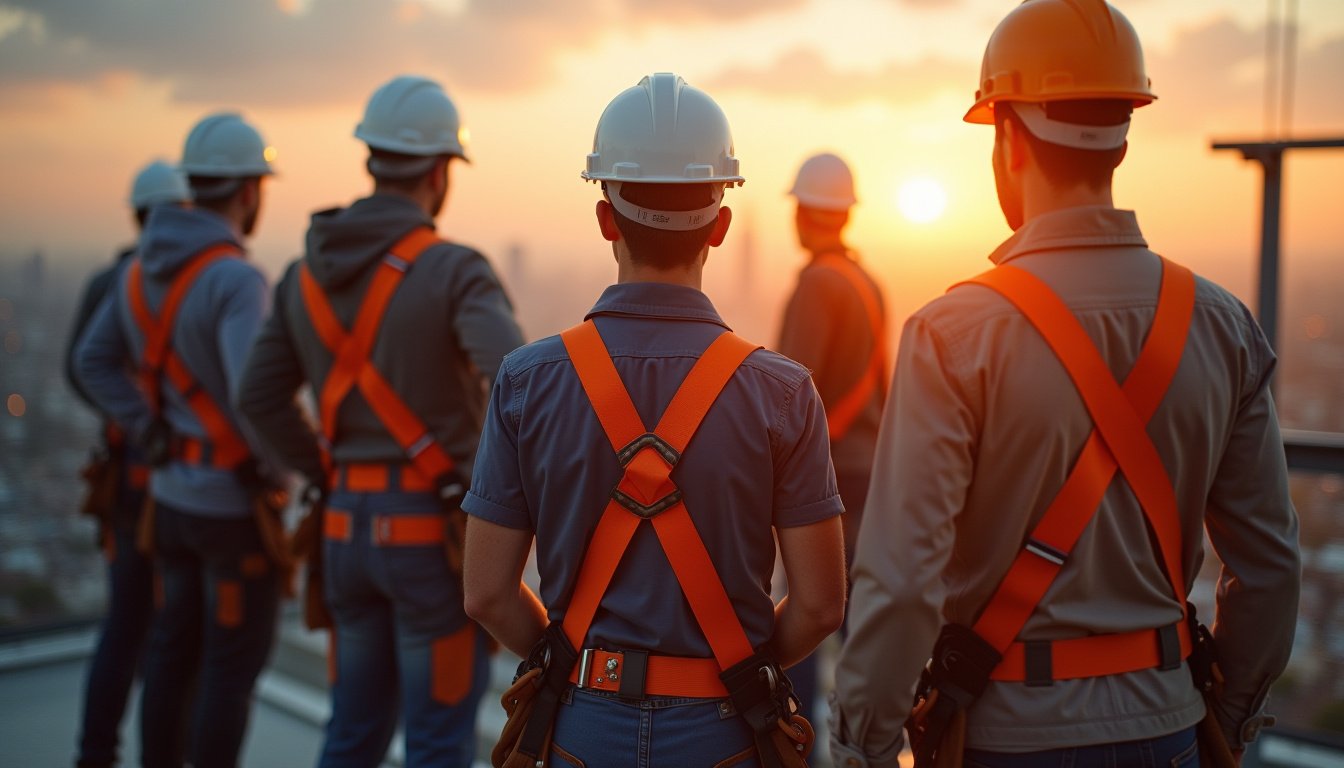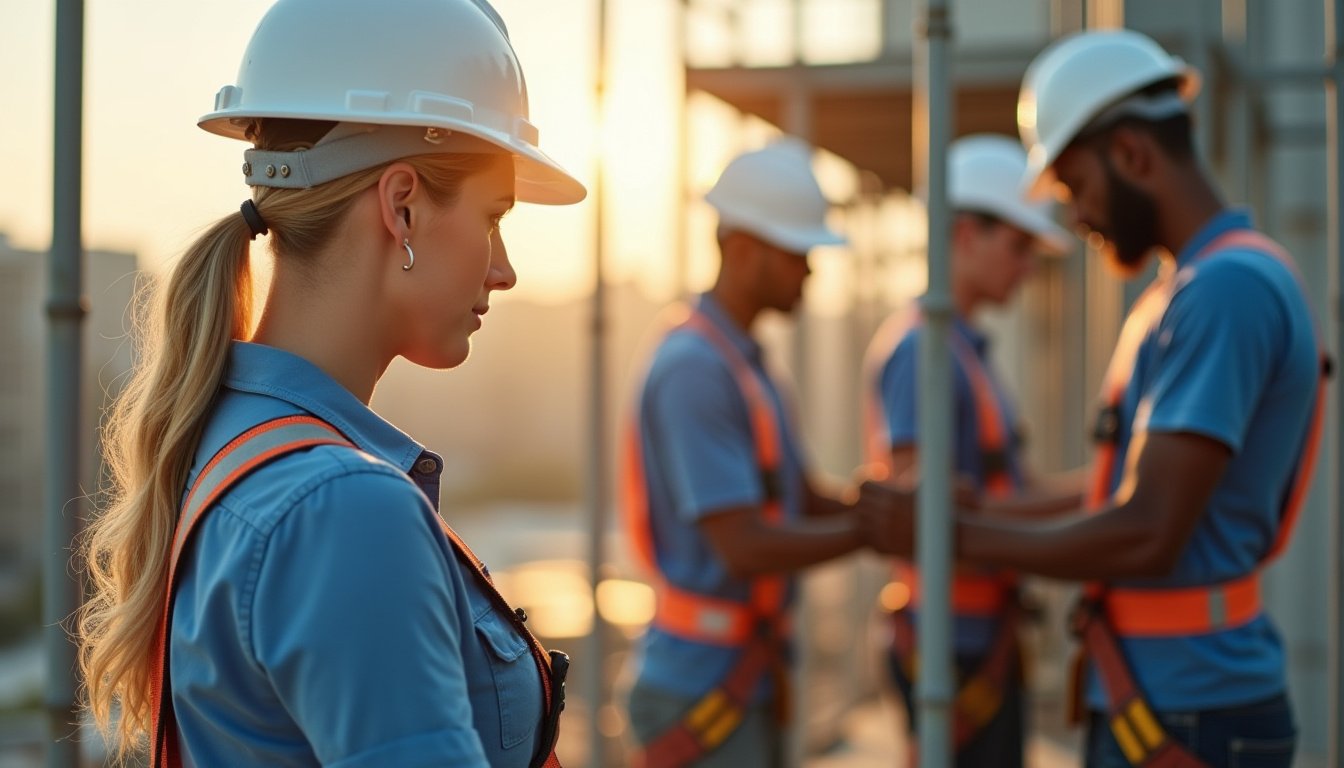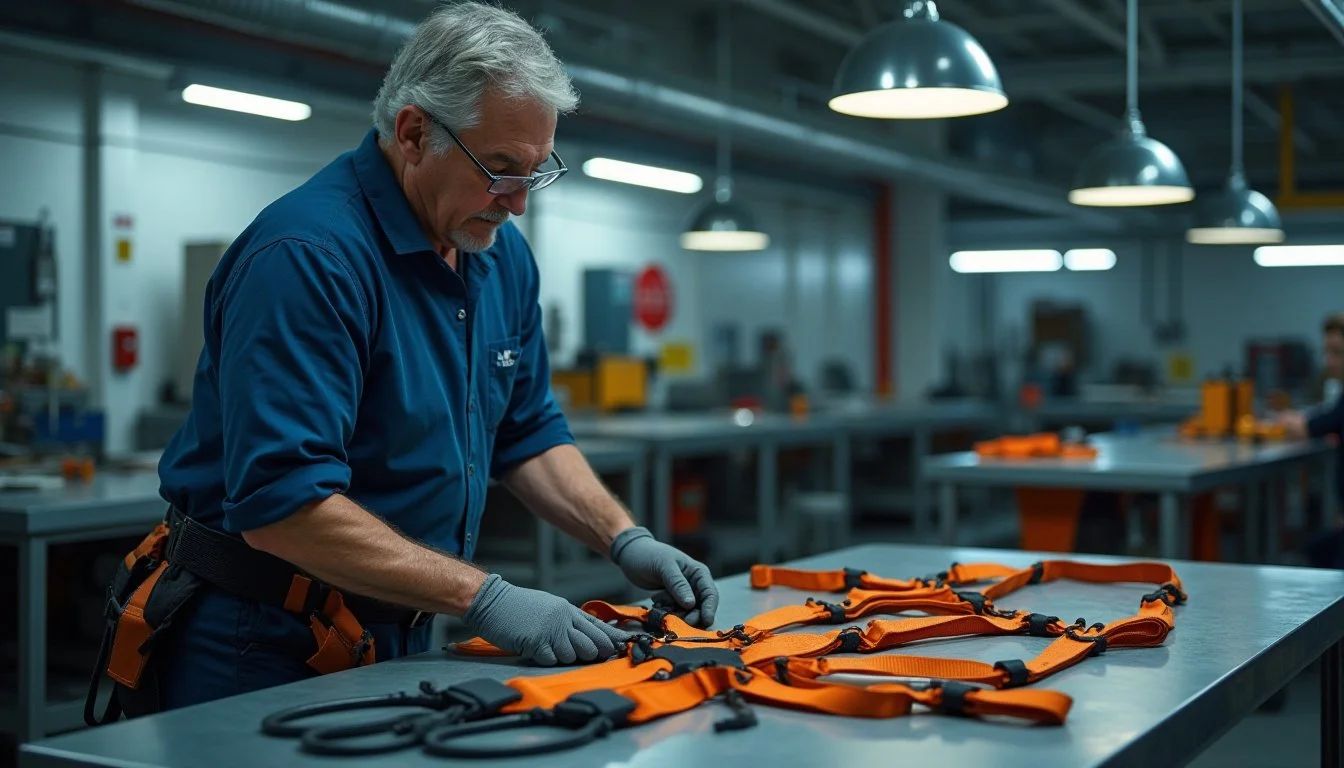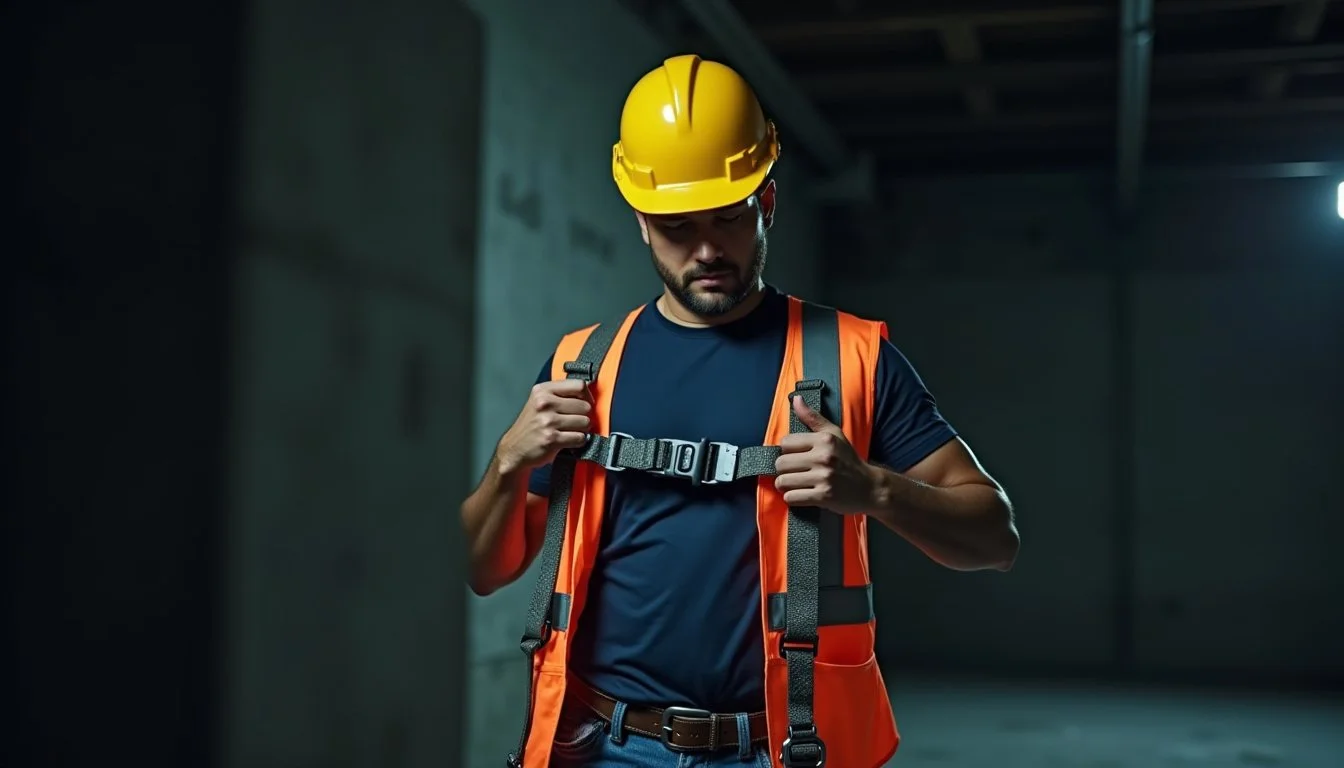
“Strap In. Stay Safe.”
Safety Harnress

How it works….
Safety Harness Training – Protecting Lives at Height
Working at height comes with serious risks—and using a safety harness correctly can be the difference between a close call and a life-changing fall. This training course is designed to give you the knowledge, confidence, and competence to use fall protection equipment safely and effectively.
The course is delivered in three key parts to suit different levels of responsibility:
Awareness – For those who need to understand when and why harnesses are used. Covers the basics of fall protection, legal requirements, and hazard awareness.
User Training – Hands-on instruction for those wearing and using harnesses. Learn how to correctly fit, adjust, and use harness systems safely during work at height.
Inspection – For individuals responsible for inspecting and maintaining fall protection equipment. Covers pre-use checks, detailed inspections, record-keeping, and compliance with safety standards.
Whether you’re a worker, supervisor, or safety officer, this course ensures you are fully prepared to select, use, and maintain safety harnesses with confidence and care.
On the course
At a glance…
6 - 10 delegates
Awareness - 3 hours, User - 30mins, Inspector - 3 hours
(can change depending on numbers, modules)
No qualifications
PPE required - safety harness
This training course is delivered on-site at your location or at a training centre location and typically lasts depends on modules, No formal qualifications are needed to attend, making it accessible to all experience levels. Group sizes are kept small, usually between 6–10 delegates, to ensure focused, hands-on learning. Delegates are required to bring safety harnesses for this training course
Part 1: Harness Awareness – Building the Foundation of Fall Protection
The Awareness module is designed for anyone who works near or around areas where fall protection may be required—even if they aren’t directly using the equipment themselves.
This section helps participants understand the why behind the harness—why it’s used, when it’s needed, and the real consequences of working at height without proper protection.
Key Learning Areas:
Understanding fall hazards and when fall protection is legally required
The difference between fall restraint, fall arrest, and work positioning systems
Overview of different types of harnesses and components (lanyards, anchor points, connectors)
Legal responsibilities under the Work at Height Regulations 2005
The importance of training, inspections, and correct usage
Real-world examples and incident case studies to highlight the risks
Who is it for?
Managers and supervisors overseeing work at height
Workers and new employees who need general knowledge of fall protection systems
Anyone working near or around others using safety harnesses
The goal is to build awareness, accountability, and respect for harness safety—because knowing the risks is the first step toward preventing them.
Part 2: Harness User Training – Confident, Correct Use at Height
This hands-on module is for workers who wear and use safety harnesses as part of their job. It focuses on practical skills, correct fitting, and real-world application to ensure every user is fully prepared to work at height safely and responsibly.
Key Learning Areas:
How to correctly select the right harness for the task (fall arrest, restraint, or work positioning)
Fitting and adjustment: Ensuring a proper, comfortable, and secure fit
Understanding the full fall protection system (anchor points, connectors, lanyards, SRLs, etc.)
Safe connection and use of lanyards and fall arrest systems
Using harnesses with other PPE (e.g. helmets, hi-vis gear, tools)
Awareness of hazards while wearing a harness, such as swing fall and suspension trauma
Practical exercises: Fitting the harness, simulating safe use, and using fall arrest blocks or systems where applicable
Who is it for?
Workers operating at height (e.g. roofing, scaffolding, MEWPs, telecoms, utilities)
Anyone required to wear a harness for restraint, arrest, or work positioning
Team leaders or supervisors who assist others in using equipment correctly
This part ensures users don’t just wear a harness—they know how to wear it right and use it effectively to stay safe in real conditions.
Part 3: Harness Inspection – Ensuring Equipment is Safe, Compliant & Ready for Use
This module is designed for those responsible for the ongoing inspection, care, and record-keeping of fall protection equipment. Harnesses and lanyards can only protect lives if they are maintained and inspected properly—this training ensures you know exactly how to do that.
Key Learning Areas:
Legal and regulatory requirements for inspecting harnesses and fall arrest equipment (PUWER, WAHR)
Difference between pre-use checks, formal inspections, and thorough examinations
How to identify wear, damage, contamination, or expiry
Inspection procedures for:
Harnesses
Lanyards and connectors
Anchor systems and shock absorbers
Understanding manufacturer guidelines and lifespan of equipment
How to record inspections correctly (logs, tagging systems, digital or paper-based records)
Storage and care best practices to extend the life and reliability of equipment
Quarantine and disposal procedures for faulty or expired items
Who is it for?
Safety officers and managers
Appointed harness inspectors
Supervisors responsible for team PPE compliance
Anyone tasked with inspecting and approving fall protection equipment
This module gives learners the confidence to spot issues before they become risks—ensuring harnesses are not just worn, but fit for purpose every time.

Why Take This Course?
Falls from height remain one of the leading causes of workplace injury and death. A safety harness can save your life—but only if it’s used and maintained correctly.
This course ensures you and your team are trained, competent, and confident in every aspect of harness safety—whether you’re wearing it, inspecting it, or overseeing others who do. From correct fitting to legal responsibilities and hands-on rescue awareness, this training helps protect your people, meet compliance requirements, and reduce the risk of serious accidents at height.
Because when it comes to fall protection, knowing what to do can be life-saving.



